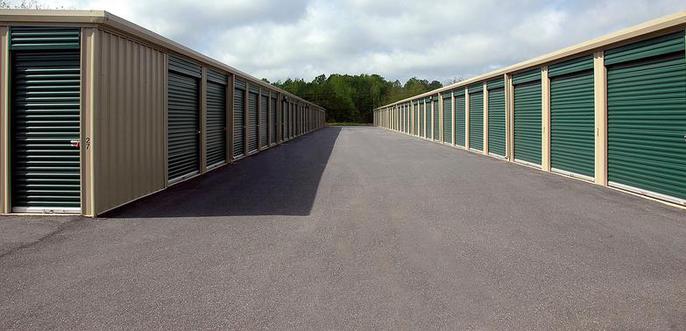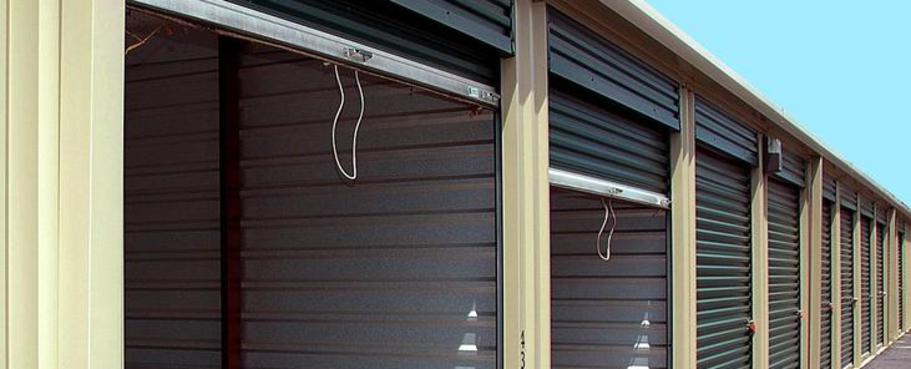StorageMostWanted.com
Home & Business Public Storage
Benefits of Effective Office Record Storage
Storing office records effectively offers a multitude of benefits that can significantly impact a business's operational efficiency, financial health, and long-term viability.
Here's a breakdown of the key benefits:
1. Improved efficiency and productivity
Faster Information Retrieval: Well-organized records, especially when digitized, allow employees to quickly locate and access crucial documents, reducing wasted time spent searching through physical files.
Streamlined Workflows: Automated records management systems can streamline tasks like document classification, indexing, and archiving, leading to smoother workflows and increased productivity across departments.
Better Collaboration: Digital record storage and sharing tools enable seamless collaboration among employees, regardless of their location, fostering efficient teamwork and knowledge sharing.
2. Cost savings
Reduced Storage Costs: Efficient records management minimizes the need for physical storage space, potentially reducing expenses associated with renting or maintaining dedicated storage facilities.
Lower Operational Costs: Digitizing records can reduce costs associated with printing, paper, and physical filing, according to the U.S. Chamber of Commerce.
Minimizing Legal & Financial Risks: Effective records management helps businesses avoid costly fines and legal repercussions stemming from non-compliance with regulations or disputes.
3. Enhanced data security and compliance
Data Protection: Secure record storage practices, including controlled access and encryption, safeguard sensitive information from unauthorized access, data breaches, and potential theft.
Regulatory Compliance: Records management ensures that businesses adhere to industry regulations and legal obligations related to data retention, protection, and disposal, such as HIPAA or SOX.
Simplified Audits and Legal Readiness: Organized and readily accessible records simplify audits, legal proceedings, and investigations, minimizing stress and potential disruptions.
4. Better decision-making and accountability
Informed Decisions: Access to accurate and up-to-date information, provided through well-managed records, empowers leaders to make better-informed decisions based on reliable data and historical insights.
Improved Accountability and Transparency: Maintaining clear audit trails and documenting key decisions fosters accountability and transparency within the organization, building trust with stakeholders.
5. Business continuity and resilience
Disaster Recovery: Robust records management systems with backups and recovery procedures ensure the preservation of critical data and enable businesses to swiftly restore operations in the face of disasters like natural calamities, ransomware attacks, or system failures.
Long-Term Preservation of Knowledge: Proper records management preserves institutional knowledge, historical data, and valuable insights, making them accessible for future planning and decision-making, notes KORTO.io.
In essence, investing in effective record storage and management is not merely about organizing files; it's a strategic move that enhances efficiency, reduces costs, ensures compliance, bolsters security, and ultimately contributes to the long-term success and resilience of a business.
Benefit of Home Storage for Moving
Moving can be a stressful and demanding process, but utilizing storage options can significantly ease the burden and provide numerous benefits:
1. Flexibility and convenience
Bridging Time Gaps: If your move-out and move-in dates don't align, storage units offer a temporary solution to house your belongings until your new home is ready.
Move at your own pace: You can pack and load items into storage containers or units gradually, reducing the pressure of a single, rushed moving day.
Renovation/Staging: When selling your home, storage helps declutter and stage your property effectively, making it more appealing to potential buyers.
Adaptability: Storage offers a buffer for unexpected delays or changes in plans during the moving process, ensuring your belongings are safe while you sort things out.
2. Security and protection
Valuable Item Protection: Secure storage facilities, especially those with climate control and robust security measures, protect valuables like furniture, electronics, and sensitive items from damage or theft during the move.
Environmental Protection: Climate-controlled units safeguard items susceptible to damage from extreme temperatures or humidity, such as wooden furniture, electronics, and artwork.
3. Cost-effectiveness
Reduced Moving Costs: Using storage allows you to move items in phases, potentially leading to a smaller moving truck and lower costs from professional movers.
Packing Material Savings: A more relaxed packing schedule can help you find affordable packing materials, reducing last-minute expenses.
Time Savings: Utilizing storage can help avoid costly decisions made in a rushed environment, like buying new furniture before assessing your new home's space.
4. Decluttering and organization
Preparation for Sale/Move: Storage helps you declutter before selling or moving, creating a cleaner, more spacious environment in your current home.
Simplified Unpacking: By storing non-essential items, you can focus on unpacking and organizing your new home more efficiently, reducing stress and making the settling-in process smoother.
In essence, whether opting for portable storage containers or self-storage units, incorporating storage into your moving plan can provide a more organized, less stressful, and potentially more cost-effective relocation experience.
Home Public Storage
Office Public Storage








